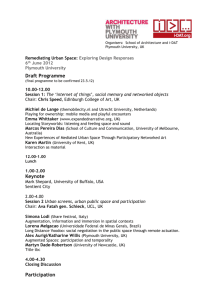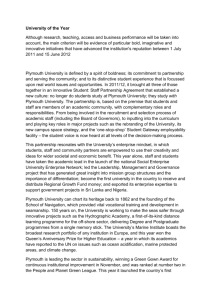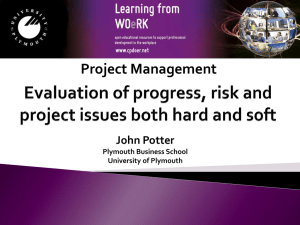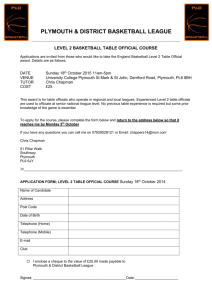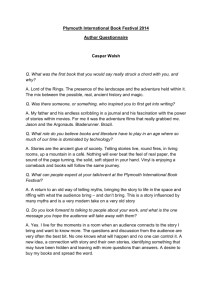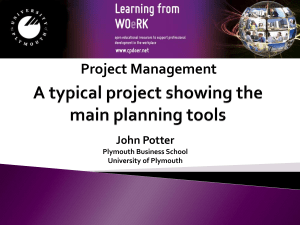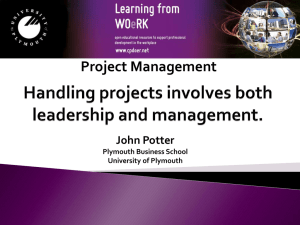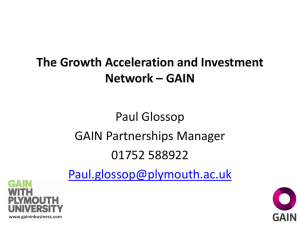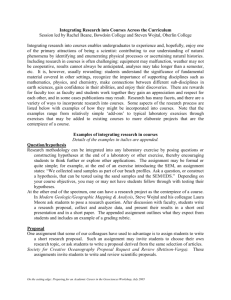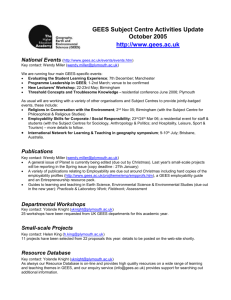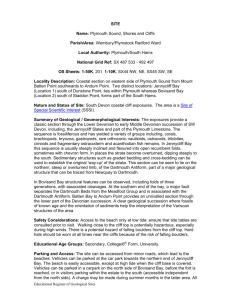T Final programme
advertisement
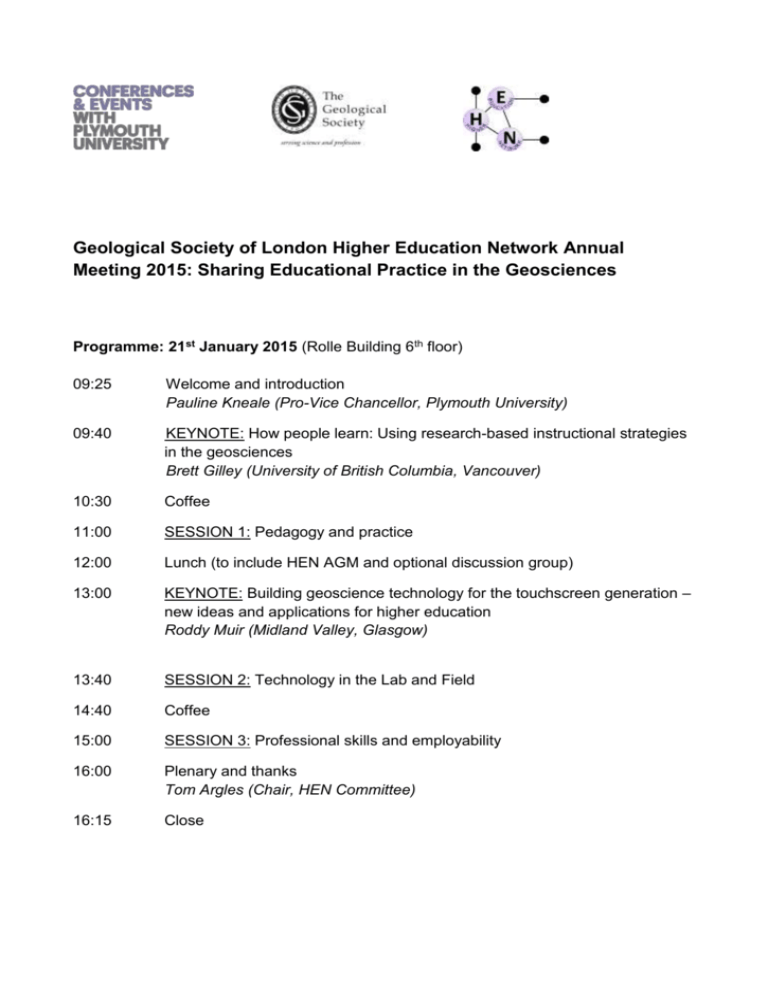
Geological Society of London Higher Education Network Annual Meeting 2015: Sharing Educational Practice in the Geosciences Programme: 21st January 2015 (Rolle Building 6th floor) 09:25 Welcome and introduction Pauline Kneale (Pro-Vice Chancellor, Plymouth University) 09:40 KEYNOTE: How people learn: Using research-based instructional strategies in the geosciences Brett Gilley (University of British Columbia, Vancouver) 10:30 Coffee 11:00 SESSION 1: Pedagogy and practice 12:00 Lunch (to include HEN AGM and optional discussion group) 13:00 KEYNOTE: Building geoscience technology for the touchscreen generation – new ideas and applications for higher education Roddy Muir (Midland Valley, Glasgow) 13:40 SESSION 2: Technology in the Lab and Field 14:40 Coffee 15:00 SESSION 3: Professional skills and employability 16:00 Plenary and thanks Tom Argles (Chair, HEN Committee) 16:15 Close SESSION 1: Pedagogy and practice (11:00 – 12:00) 11:00 Student perceptions of “feedback” during fieldwork: a case study from first year undergraduate teaching Emma Passmore, Philippa Mason & Lorraine Craig (Imperial College) 11:15 “Least necessary, least impact”: dealing with pre-conceptions during field-based exercises Mark Holton, Plymouth University 11:30 Peer-teaching of Climate Change Science Chris Satow, Kingston University 11:45 Delivering accessible fieldwork: preliminary findings from a collaborative international study Alison Stokes (Plymouth University), Chris Atchison (University of Cincinnati), Anthony Feig (Central Michigan University) & Brett Gilley (UBC, Vancouver) LUNCHTIME DISCUSSION: What might a specially developed first year undergraduate geoscience module, specifically geared to those who have successfully passed A-level geology, look like? Chaired by Chris King (Keele University) SESSION 2: Technology in the Lab and Field (13:40 – 14:40) 13:40 Virtual Reality Geological Studio (VRGS): A software tool for teaching with digital outcrop imaging in the geosciences David Hodgetts (University of Manchester) 13:55 Going Digital: Using EDINA's Geospatial Services & Resources in Teaching Tom Armitage (EDINA, University of Edinburgh) 14:10 Virtual Demonstrator: a sustainable way of teaching laboratory and field techniques Katherine Ficken (Swansea University) 14:25 The role of Google Earth in developing terrain evaluation and mapping skills Anne Mather, Martin Stokes & Stephanie Mills (Plymouth University) SESSION 3: Professional Skills and Employability (15:00 – 16:00) 15:00 What is ‘geology’? A word association study and its implications for geoscience communication Hazel Gibson (Plymouth University) 15:15 The value of a mentoring program in Higher Education Mike Streule (Imperial College), Kaisa Freeman (Rio Tinto, Western Australia) & Lorraine Craig (Imperial College) 15:30 Knowing what your graduates do: Tracking geoscience graduate employment using LinkedIn Martin Stokes (Plymouth University) 15:45 Essentials for GEES graduates in the 22nd Century? Brian Whalley (University of Sheffield) INTERACTIVE WORKSHOP: E-games and virtual worlds: golden egg or wild GEES chase? Programme: 22nd January 2015 09:00 Educational e-gaming: effective and consistent virtual learning environments for geoscience students Jamie Pringle (Keele University) A virtual view of the Sherwood Sandstone from Alderley Edge, Cheshire, using Virtual Reality Geological Studio (VRGS) David Hodgetts (University of Manchester) 10:45 Coffee 11:15 Geological Mapping in a Virtual World Jacqui Houghton (University of Leeds), Annabeth Robinson (Leeds College of Arts), Claire Gordon, Geoff Lloyd & Daniel Morgan (University of Leeds) Improved volcanic hazard communication through educational video games: an example from St. Vincent, West Indies Lara Mani, Paul Cole, Iain Stewart, Stephanie Lavau, Mike Phillips & Luke Christison (Plymouth University) 13:00 Lunch 13:45 Exploring the affordances of virtual fieldwork in a multi-user, 3-D digital environment Tom Argles, Shailey Minocha (Open University) & David Burden (Daden Ltd., Birmingham) 14:45 Demonstration and discussion: Plymouth University Immersive Vision Theatre 16:00 Close Locations: 09:00-10:45 and 13:45-14:45: Fitzroy Building 302 11:15-13:00: Babbage Building 213 14:45-16:00: Immersive Vision Theatre Coffee and lunch: Rolle 002
